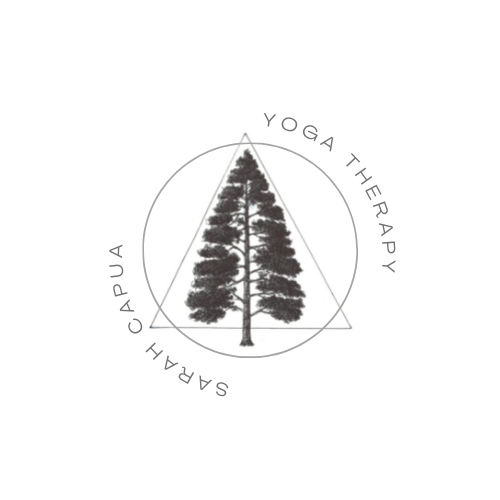Yoga is relationship, and the student-teacher relationship is an honor to cultivate and protect. Mentorship is the key to ensuring the development and uprightness of our teachings.
Why mentorship
Teacher training in the west often skips one of the most essential parts of the yogic process: the recognition that yoga is an experiential philosophy, a path which does not end at 200 hours. As a teacher in certification programs, I have watched students who after their training program have no support for the questions that continue to evolve and appear once they have entered the true work of teaching yoga to real people. The foundation for a strong and enduring life as a teacher is the path of the acharya: one who is on the evolving, life-long path of yoga, and who is supported by a consistent relationship with a teacher. Mentorship is the opportunity to build a life as a teacher which is grounded in reflection, curiosity, and ethical accountability.
Mentorship tracks
Subtle Body/Breath - For teachers wishing to deepen their integration of Yoga’s subtle body systems with their methodology of teaching. In this track, we explore the practical and experiential relationship with Yoga’s understandings of the human system, including the Pañcamaya/Kosha Model, the Vayu-s, Nadi-s, Gunas, and Chakras, as well as the breathing system and breath technique. This track is appropriate for teachers who wish to sensitize and deepen their understanding of what we are accessing when we work with the body and awareness. An important element of this track is it’s experiential focus (rather than info collection), and requires a dedicated period of guided practice with these subtle concepts.
Yoga Sūtra-s - For teachers who wish to ground their work in the teachings of Yoga. This track offers one-on-one, in-depth exploration of the Sūtra-s and how they can guide us in our teaching methodology and how we offer support to our students. This track is directed by the questions brought by the student, which can be philosophically based or broader questions on what the text has to say about certain concerns, challenges, road blocks, or processes.
Ethics - As Desikachar said, the two things required of a teacher are that we do our practice and we care about people. In this track, we will explore the ethical precepts of the Yoga Sutras: ahimsa (non-violence), satya (honesty), asteya (not stealing), brahmacharya (moderation in our actions), and aparigraha (non-greed) in an alive and personal manner. We begin from the understanding that these tenants are important precisely because we will break them again and again, and that showing up to that truth paves the way for upright relationship. The deep exploration of these concepts in our teaching and our life illuminate the student-teacher relationship, the areas where we can be more thoughtful and effective, and how to develop and nourish those relationships over time.
General mentorship - General membership can look like all of the above, and takes on the form of ongoing and consistent support and presence for whatever the student might be working with. This track is best for teachers who are coming with a question, challenge, or need for support but don’t know exactly how to address it. We will discover what is needed on this path together.
How it works
This one-on-one mentorship program begins with a 3 or 6 month commitment, with bi-monthly meetings, opportunities to observe each other teach, contemplative assignments and deeper study suggestions, and time to discuss and question together. After the initial, more intensive commitment, mentorship evolves into an ongoing, fluid relationship for as long as it serves the student. This could mean a check-in every few months, or just knowing that there is someone there for you when you have questions or concerns as a teacher.
3 month intensive = $525
6 month intensive = $1000
After initial intensive, we transition to regular private session rate
If you are interested in mentorship and would like to have a conversation to see if it is right for you, please fill out the form below.
“Mentorship with Sarah has helped me to truly see the students that come to my classes; to truly feel a relationship with each student, with deep attention to posture, ethics, and honor for the lineage of my own practice. I feel able to provide thoughtful instruction with heartfelt intention, and a curiosity which leads me to continued study.”
“Working with Sarah has allowed my teaching to blossom. Her knowledge of the body and the way it moves complimented my 200 hour yoga teacher training. I was able to take what I knew and work towards viewing the postures through the function of the spine. By adding this new way of looking at students I was able to better discern when an adjustment or modification was appropriate. Her respect for me as an apprentice showed greatly when I had questions or concerns. Sarah was attentive, open, honest and willing to let me find the answers to my questions on my own time. This type of support gave me more confidence that my intuition was leading me in the right direction. Working with Sarah has been such a pleasure; I am so grateful for the community she has built and the studies she is so willing to share. My practice has grown tremendously because of the way she guided me through this apprenticeship and has helped to build the foundation of my teachings. ”

